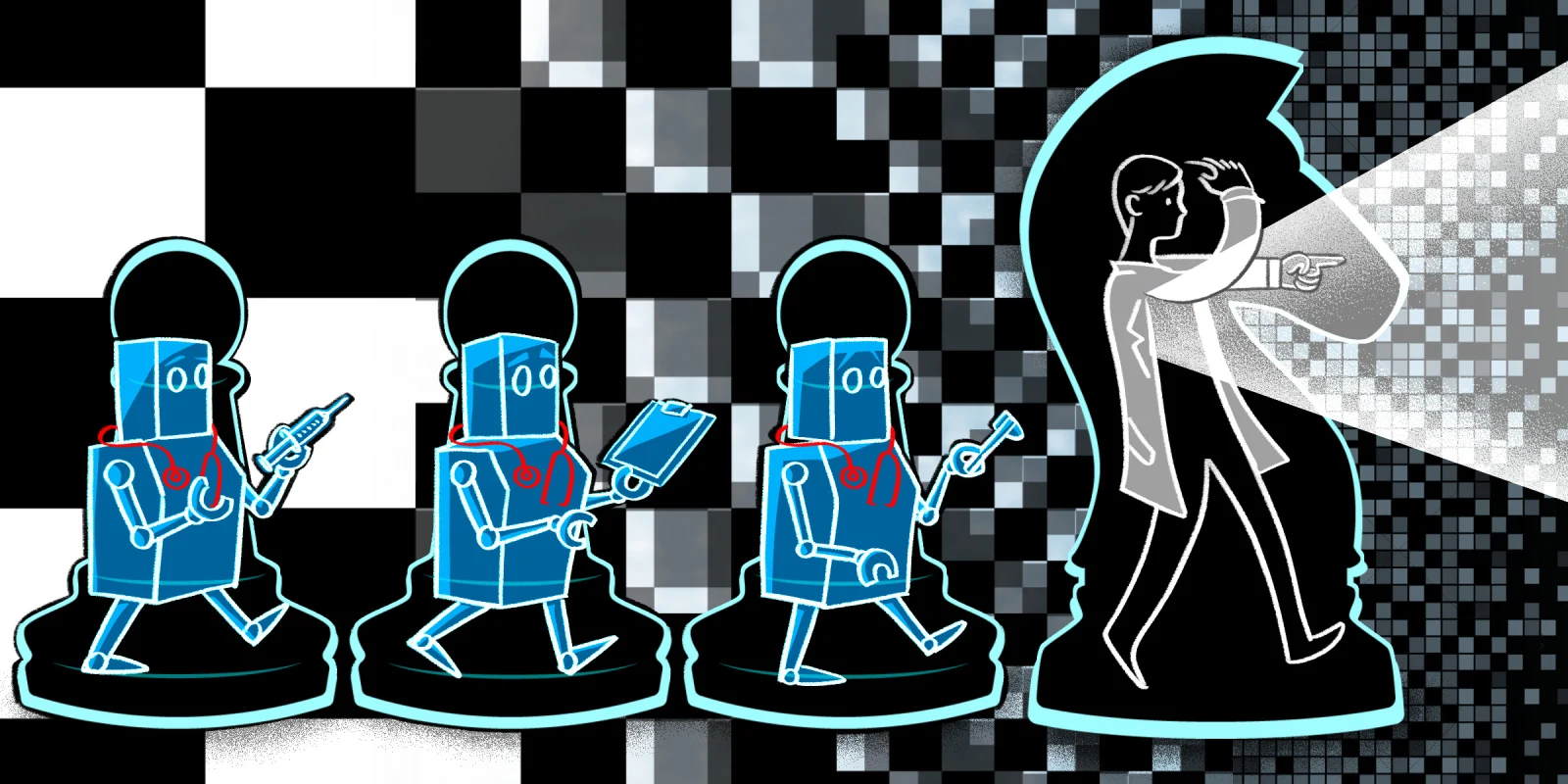Since ChatGPT launched in November 2022, there has been an explosion of interest in AI and this year we will be seeing a major penetration of AI into the scientific meeting. Although our group has been using machine learning and AI in our research for years, building new diagnostics and in-silico organs, I have remained somewhat skeptical regarding some of the promises made by those who believe it will change everything we do. Thus, I think it is important to trial these technologies with some skepticism and see first-hand if they can deliver on these promises.
Last year, we were approached by Medtronic to bring GI Genius into our labs last year at Northwestern during their initial launch. Once again, I was not totally sold and wanted to see how this AI platform would work in our system. I was not about to ask my hospital system to buy 16 systems for our Endoscopy Unit until I was convinced it would work and would not interrupt the work flow of our busy endoscopy unit. Thus, with the generous support from one of our donors, I asked Dr. Raj Keswani, one of our key members of the Artificial Intelligence and Mathematics in GI (AIM-GI) program, to test the system in a pragmatic trial at Northwestern. Dr. Keswani was already in the midst of doing work developing an AI tool to assess colonoscopy quality. He developed an interactive AI-Colonoscopy Quality (AI-CQ) tool that uses recorded videos to assess endoscopist performance. Recorded videos are evaluated by the AI-CQ to identify important landmarks, presence of polyps, insertion time, high-quality withdrawal time to provide a comprehensive assessment of colonoscopy quality. He will present the validation of this platform at DDW this year as an ASGE oral presidential plenary presentation.
In tandem, Dr. Keswani and his team were able to quickly implement a study over a 6-month study period using 4 leased devices. In the study, 21 colonoscopists performed 4,820 colonoscopies (Screening: 2,459, Surveillance: 1,472, and Diagnostic: 889). They found that screening and surveillance polypectomy rates significantly increased in computer aided detection (CADe) rooms compared to non-CADe rooms (60.5% versus 51.7%, p<0.0001; Table). When CADe was available, screening colonoscopy adenoma detection rates (50.6% versus 41.6%, p<0.0002) and serrated polyp detection rates (19.4% versus 14.7%, P=0.006) significantly increased. This presentation will be presented as an ASGE oral presentation at DDW 2023. More importantly for our practice, the results from this trial supported our decision to add GI genius to all of our endoscopy rooms last month.
This year at DDW there are over 60 presentations with Artificial Intelligence in the title and the topics range from issues related to equity-centered, beliefs and attitudes about AI to highly technical diagnostics in all aspects of gastroenterology and hepatology. Although I am extremely excited about all of these new developments, I will still maintain some level of skepticism as AI is still only as good as the data and researchers developing the models.
Disclaimer: I wasn’t able to make ChatGPT write this for me since it is only updated to 2021 and has no information on DDW 2023. Therefore, you will have to come to DDW in-person as ChatGPT can’t replace the experience this year. I look forward to seeing everyone in Chicago.
Dr. Pandolfino has received NIH R01 and P01 grants, consulting fees or honorarium from Medtronic, Ethicon, Ironwood, Phathom, Takeda, Diversatek, has patents with FLIP-Panometry, and Medtronic royalties.
Illustration by April Brust






